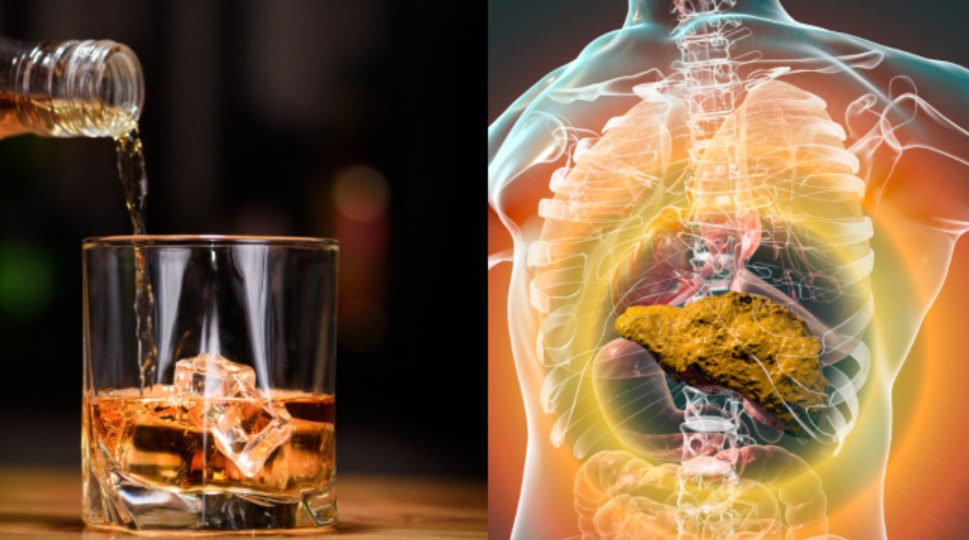The streets of London hum with the rhythm of everyday life, but hidden beneath the surface is a story many have yet to truly hear. Alcohol, that old companion of social gatherings and quiet moments, has been quietly weaving itself into a more complex narrative — one that touches not just the heart, but the body. The numbers tell us of a growing risk, and the researchers now shout where whispers once sufficed: the relationship between alcohol and cancer is far more intricate, far more perilous, than we once understood.
The Unseen Harm
The clinking of glasses is as old as time, and for centuries, we’ve believed in the myths: wine for the heart, a drink for the soul. But the truth, like the light of dawn after a long night, is breaking through. In a study led by the American Association for Cancer Research, it has become clear that the incidence of cancers, particularly breast cancer and colorectal cancer, has risen sharply, particularly in adults under 50. These increases do not stand alone. Alcohol, long considered harmless in moderation, may in fact be feeding this fire.
“More than one in twenty cancers in the United States could be tied to alcohol consumption,” researchers found, shining a light on what we’ve tried to overlook. While cancer death rates may have declined, the sheer number of diagnoses is on the rise — and for many, this is an alarming shift. Alcohol and cancer risk are now part of the same conversation, one that can no longer be ignored.
The Myth of Moderation
It’s not just the excess that threatens, but even the familiar friend of moderation. The comforting idea that a little wine can protect the heart has been upended. New data from 135,000 British adults over more than a decade has shown that light and moderate drinkers derive no significant protection against heart disease compared to those who drink rarely. The research, steady and unflinching, tells us that any potential benefit to the heart is outweighed by the risks alcohol brings to our overall health.
Dr. Jane Figueiredo, an epidemiologist at Cedars-Sinai in Los Angeles, offers a poignant reminder: “We must move beyond the myth of red wine and cardiovascular health. There are countless other ways to protect the heart. And none carry the burden of a higher cancer risk.” In simple terms, she calls us to think differently, to reconsider that casual glass of wine or beer. The path forward for our hearts does not need to come at the cost of our lives.
Alcohol and Six Cancer Shadows
For those who drink in excess, the shadows grow longer still. The study reveals a harrowing truth: six cancers — including esophageal, liver, stomach, breast, and those of the head, neck, and colorectal regions — are tied to alcohol consumption. The figures are stark: 5.4% of all cancer cases in the United States from 2019 were linked to alcohol. These aren’t just numbers. They are mothers, fathers, sons, and daughters. They are stories like yours and mine.
Dr. Figueiredo speaks of alcohol’s impact on the microbiome — the delicate balance of bacteria that lives within us. These unseen creatures are our first line of defense. But alcohol, like a silent storm, disrupts their harmony, leaving us vulnerable. In women, alcohol can also raise estrogen levels, a hormone that when increased, can fuel the growth of breast cancer.
A Rising Tide of Cancer in Young Adults
From 2010 to 2019, cancer rates surged in adults as young as 30. More and more people in their 30s and 40s are finding themselves facing a diagnosis that was once reserved for later years. The cancers of breast, thyroid, colon, and rectum are the most rapidly increasing. We ask ourselves: how did we get here? And more importantly, what can we do to turn the tide?
Alcohol, with all its seductive allure, doesn’t just age the body — it invites disease. The increased consumption of alcohol in midlife only worsens the risk, bringing to light a need for deeper understanding and a call for change.
A Time for Change: Protecting Our Future
The story of alcohol and cancer is not one we can turn away from. It touches us all — whether we drink or not, whether we live in the bustling cities or the quiet countryside. Our bodies, like the earth, bear the scars of the choices we make. And just as the dawn reveals the path ahead, this new research gives us the chance to see more clearly and choose differently.
Let the clinking of glasses no longer be a song of forgetfulness, but a moment of reflection. Because within each sip lies not just joy, but also risk. And as we come to understand that risk, we can shape a future where fewer lives are lost, and more hearts beat strong.


